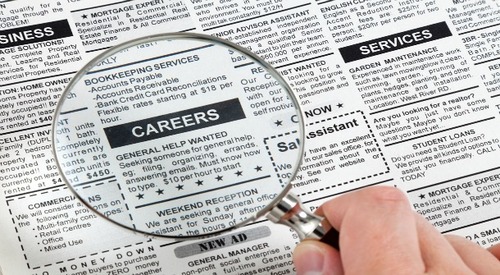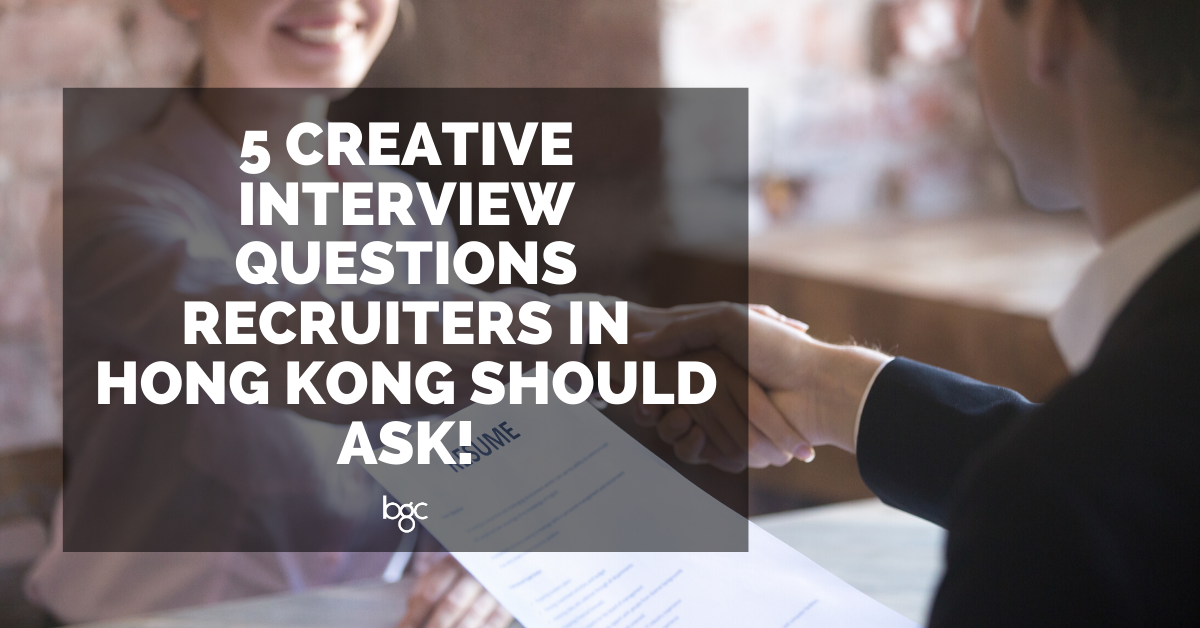To some, job hunting is just like dating. There are ups and downs, and rejection is plenty. In fact, getting rejected for a position is something pretty common – that even qualified job seekers get turned down. Your qualifications are only a small part of the job search puzzle. In fact, a lot of qualified job seekers get rejected from their dream jobs and recruiting pipelines every day.
Here are some of the reasons why you didn’t get the job despite being qualified in Hong Kong, from a trusted job agency:
1. You Didn’t Ask the Right Questions During the Interview

One of the best ways candidates can make a good impression during the interview is by asking thoughtful questions at the end of every job interview. But why does this matter?
Well, asking the right questions means that you’re genuinely interested in the company and/or industry. If you walk away from the interview without asking any questions, it might give the interviewer the impression that you’re not interested in the job.
Asking questions during a job interview encourages two-way dialogue. It also gives the interviewer a sense of your personality, and whether or not your character will be a great fit in the workplace.
Remember, employers, want to work with people that they can get along and make small talk with!
*Pro-tip
If you don’t know what to ask, try asking the interviewer questions about the day-to-day activities you’ll be doing on the job, or about the culture at their workplace! Or if you’ve done the research, ask them about the industry.
Never go into an interview without preparing the questions you want to ask!
2. You Didn’t Follow Up After the Interview
Congratulations! You’ve landed an interview, and aced it. There’s no reason for them to reject you now, right? Wrong! You forgot to thank them for the interview opportunity.
Whilst this might not be the reason why you failed to get the job, it’s always best to cover your bases so that you have the best chance of landing your ideal position.
You want to follow up after the interview, to let the recruiter know that you’re both interested and passionate about the job. Failing to do a quick follow up after the interview might give the hirer the wrong impression.
How can I follow up after the interview?
The best way to do this is by sending a follow-up email. According to Forbes, your thank you email should feature three elements:
-
Gratitude for your interviewer’s time
-
Gratefulness for gaining more information and insight into the job position and the company
-
Enthusiasm for the respective role
-
A gentle reminder for them to get back to you
-
With this in mind, you should also remember to keep your thank you email as short and sweet as possible. Your interviewers are busy people too!
3. You’re Overqualified and it Scares Them

You might think that being overqualified means that you’re perfect for the role. But employers might think twice before hiring you because they’ll assume that you’ll be asking for too much money. Think about it, a job seeker with a Ph.D. might not want to settle for a job that pays S$3,000.
Additionally, some hiring managers might think that overqualified candidates are interested in using the job as a temporary gig, whilst waiting for a better offer.
But you can help convince hiring managers otherwise, by following the steps below:
-
Let the hiring managers know that you’re overqualified. Inform the hiring managers that you’re aware that you’re overqualified in your cover letter. But be sure to also let them know why you’re interested in the position. Is it because of the challenges and new opportunity the job creates? Or are you applying for the job because it is a new industry for you to tackle? You want them to know your reasons.
-
Assure them that you’re in it for the long haul. Again, this can be addressed in your cover letter, and even your email introduction. Doing this assures the hiring manager that you won’t leave for another position.
-
Be flexible with the potential salary. One of the biggest obstacles that stalls HR executives from hiring overqualified candidates are the large paycheck that these candidates demand. It’s always best to put the term “flexible” as the salary range on your resume.
-
Tweak your resume. If all else fails, you should remove anything (e.g. education or experience) that makes you seem overqualified on your resume.
4. You Didn’t Follow the Instructions Listed in the Job Ad

Many companies will sneak instructions in their job advertisements. The instructions can be as trivial as, “please include ‘sales consultant role’ in your application”. Or it can be something as specific as, “include 50 copies of your portfolio”. Whatever it is, these hiring managers are requesting it for a reason.
If you cannot follow the basic instructions listed in the job advertisement, then you’ve sadly failed your first job assignment. Not only that, hiring managers might think that this behaviour will translate to your potential job duties.
5. You Didn’t Click with the Interviewer

We’ll say it before, and we’ll say it again. People want to hire people that they can work with. And even though your resume might be outstanding, your interview answers great, the reason for your rejection might just be that you didn’t “click” well with the hiring manager. Or maybe you did but there was a better candidate that came after your interview.
Unfortunately, it’s really hard to control this “click” factor. Interviewers are only human. Sometimes, they make biased judgments about someone’s personality based on their looks or even their interactions. Or sometimes, they think that you might not be the best fit for their company and workplace culture. And let’s face it, this rejection might be in your favour. You wouldn’t want to work with an interviewer who is hard for you to get along with, wouldn’t you?
6. You Were Not Memorable

An interview is a lot like an audition, for a job. During the hiring season, interviewers often spend their time meeting and talking to A LOT of candidates. If you want to get the job, you’ll have to be able to stand out from the crowd.
We’ve listed some of the reasons why you failed to stand out from the crowd, below:
-
You lack confidence. Check your handshake. What about your body language and tone of voice? It pays to be unapologetically loud and confident during the interview.
-
Your outfit blended into the background. Consider wearing professional outfits in eye-catching colours.
-
You didn’t connect with your interviewer. Connecting on something in common with the interviewer is a great way to be remembered. The connection doesn’t have to be work or industry related. Perhaps you both discovered that you have a shared interest for a new app or a recent Netflix release. Don’t let the conversation die just yet! Your future job and career might rely on the recent Game of Thrones episode.




